The AMD 3rd Gen Ryzen Deep Dive Review: 3700X and 3900X Raising The Bar
by Andrei Frumusanu & Gavin Bonshor on July 7, 2019 9:00 AM EST** = Old results marked were performed with the original BIOS & boost behaviour as published on 7/7.
Benchmarking Performance: CPU Legacy Tests
3DPM v1: Naïve Code Variant of 3DPM v2.1
The first legacy test in the suite is the first version of our 3DPM benchmark. This is the ultimate naïve version of the code, as if it was written by scientist with no knowledge of how computer hardware, compilers, or optimization works (which in fact, it was at the start). This represents a large body of scientific simulation out in the wild, where getting the answer is more important than it being fast (getting a result in 4 days is acceptable if it’s correct, rather than sending someone away for a year to learn to code and getting the result in 5 minutes).
In this version, the only real optimization was in the compiler flags (-O2, -fp:fast), compiling it in release mode, and enabling OpenMP in the main compute loops. The loops were not configured for function size, and one of the key slowdowns is false sharing in the cache. It also has long dependency chains based on the random number generation, which leads to relatively poor performance on specific compute microarchitectures.
3DPM v1 can be downloaded with our 3DPM v2 code here: 3DPMv2.1.rar (13.0 MB)
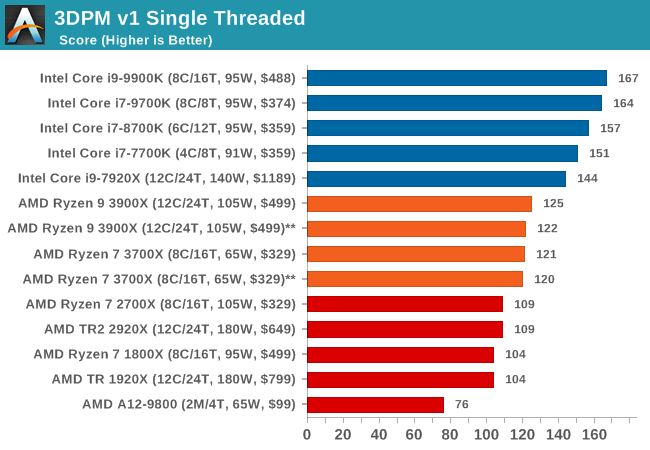
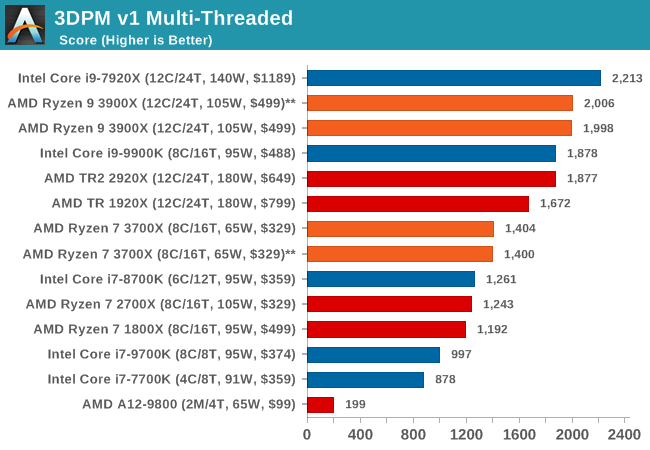
x264 HD 3.0: Older Transcode Test
This transcoding test is super old, and was used by Anand back in the day of Pentium 4 and Athlon II processors. Here a standardized 720p video is transcoded with a two-pass conversion, with the benchmark showing the frames-per-second of each pass. This benchmark is single-threaded, and between some micro-architectures we seem to actually hit an instructions-per-clock wall.
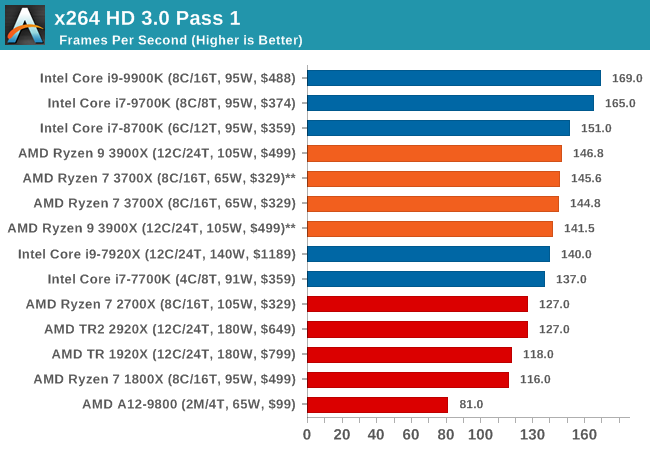
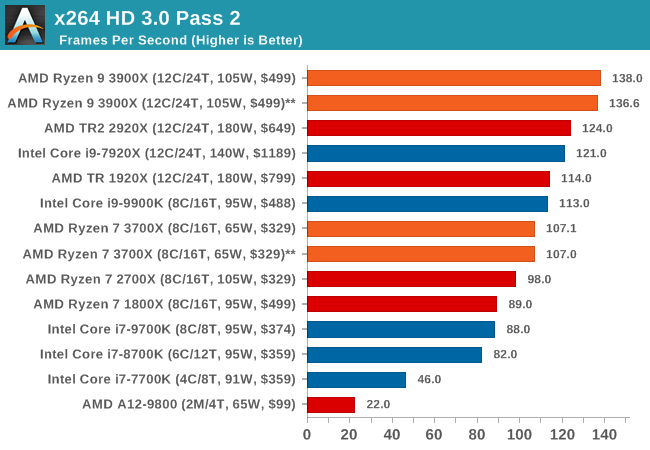
CineBench 11.5 and 10
Cinebench is a widely known benchmarking tool for measuring performance relative to MAXON's animation software Cinema 4D. Cinebench has been optimized over a decade and focuses on purely CPU horsepower, meaning if there is a discrepancy in pure throughput characteristics, Cinebench is likely to show that discrepancy. Arguably other software doesn't make use of all the tools available, so the real world relevance might purely be academic, but given our large database of data for Cinebench it seems difficult to ignore a small five minute test. We run the modern version 15 in this test, as well as the older 11.5 due to our back data.
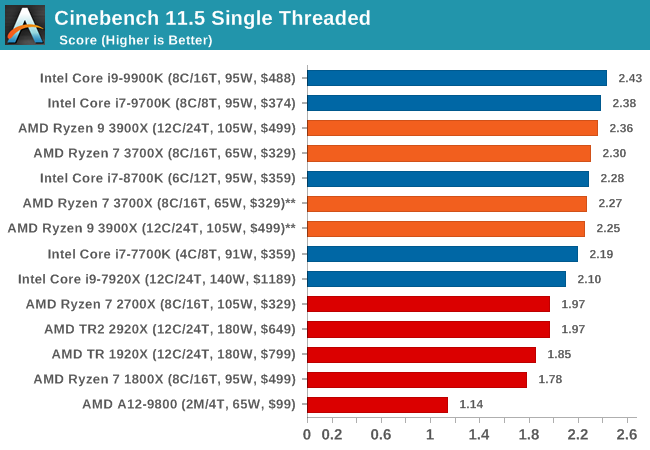
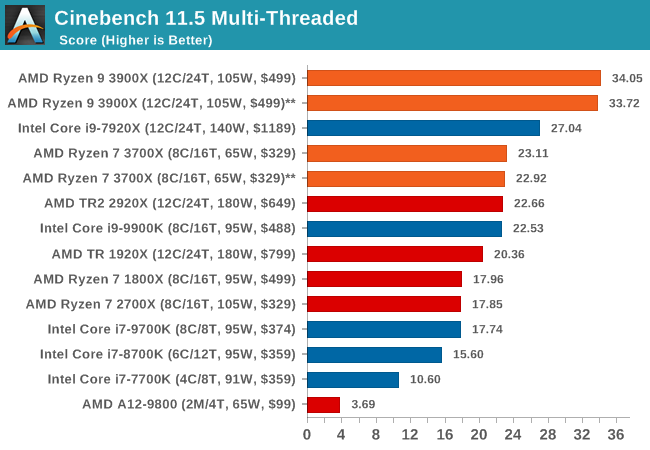










447 Comments
View All Comments
kd_ - Tuesday, July 9, 2019 - link
Take it easy, BobIrata - Tuesday, July 9, 2019 - link
Did you bother to read Andrei F's twitter post regarding the Bios update - it includes a nice graph where you can see the 3900x's cores boosting to what looks like 4.6 Ghz.Xyler94 - Wednesday, July 10, 2019 - link
Oh god, you're still on about that?Intel doesn't guarantee boost clocks. It's literally on their website. The only guarantee is base clocks. Boost clocks depend on cooling and power delivery.
atl - Wednesday, July 10, 2019 - link
While 3900X vs i9-7920K and 3700X vs i7-9900K is a no-brainer, i would really wanna see how performs (overclocked) 3600 vs this bunch of CPUs.This will help making some interesting decisions for optimizing budged.
Mugur - Wednesday, July 10, 2019 - link
Check Hardware Unboxed / Gamers Nexus on Youtube or Techspot site...beginning - Wednesday, July 10, 2019 - link
Are these benchmarks of Intel CPUs after applying all the patches released so far for addressing vulnerabilities?GreenReaper - Wednesday, July 10, 2019 - link
The BIOS in the Intel motherboards tested are from 2018; most appear to only have microcode to handle Meltdown/Spectre (despite the availability of BIOS versions that would work). So... no.beginning - Thursday, July 11, 2019 - link
Thank you for your responseMeteor2 - Monday, July 15, 2019 - link
No; they didn't retest the Intels on Windows 10 1903, which includes the OS-side patches for the MDS flaws. The motherboard firmware patches may never come.This really does invalidate the Intel numbers, but it's not critical: on a up-to-date system, they'll be slower, and Ryzen 3000 even further ahead.
529th - Wednesday, July 10, 2019 - link
Will there be updated OC results with the new bios?